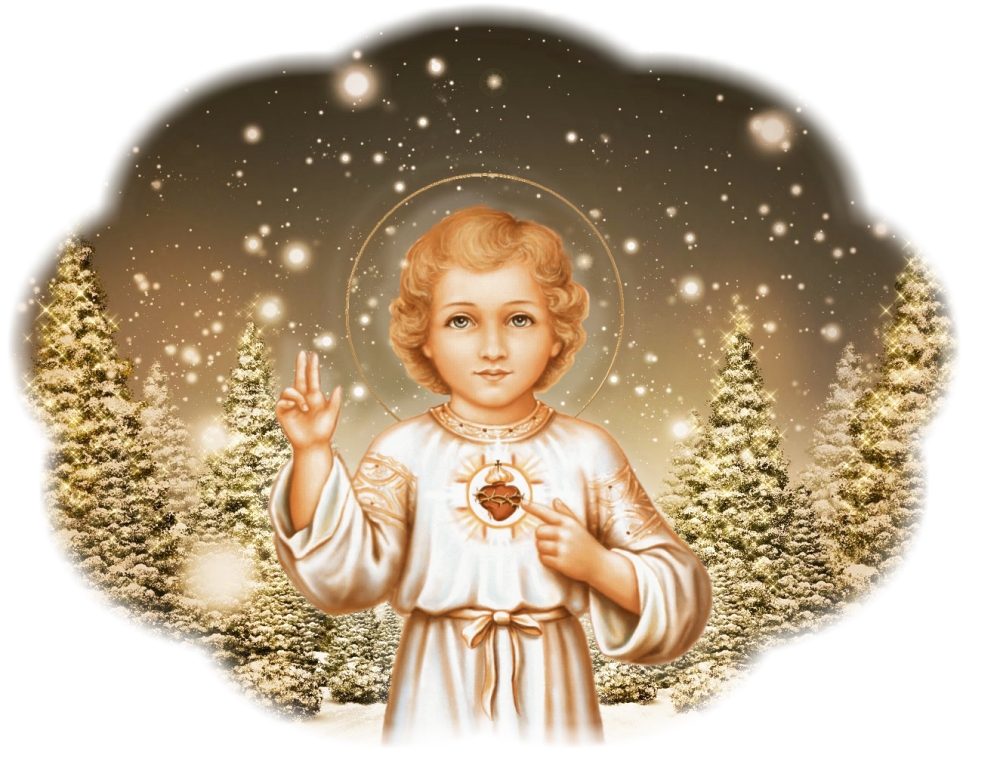  DISCOURSES FOR ADVENT Taken from THE INCARNATION, BIRTH AND INFANCY OF JESUS CHRIST by St. Alphonsus Liguori THE REDEMPTORIST FATHERS 1927 With Nihil Obstat and Imprimatur DISCOURSE V The Eternal Word From Being Strong Became Weak Part 1 Dicite pusillanimis: Confortamini, et nolite timere: ...Deus ipse veniet, et salvabit vos. "Say to the faint-hearted: Take courage, and fear not: God Himself will come and will save you."---Isaiah 35:4 Isaias, speaking of the coming of the Redeemer, made this prediction: The land that was desolate and impassable shall be glad, and the wilderness shall rejoice and shall flourish like the lily. [35:1] The Prophet had been speaking of the pagans (among whom were our unfortunate ancestors), who were living in heathendom, as in a desert land, void of a single man that knew and worshipped the true God, but peopled only with those who were slaves of the devil: a desert land and impassable, because there was no path of salvation known to these wretched people. And he foretold that the land, though so miserable then, would afterwards rejoice at the coming of the Messias, and would see itself filled with followers of the true God, strengthened by His grace against all the enemies of their salvation; and that it would blossom as the lily, by purity of morals and by the sweet odor of all holy virtues. Wherefore Isaias proceeds to say: Say to the faint-hearted, Take courage, and fear not: God Himself will come and save you. This very event, foretold by Isaias, has already happened. Let me, then, exclaim with gladness; Go on joyfully, O children of Adam! go on joyfully, be no more faint-hearted. Even though you perceive yourselves weak, and unable to stand against so many enemies, "Fear not; God Himself will come and save you." God Himself has come on earth, and has redeemed us, by imparting to you strength sufficient to combat and to vanquish every enemy of your salvation. How did our Redeemer procure for us this strength? From being strong and omnipotent, He has become weak. He has taken on Himself our weakness, and by so doing has communicated to us His strength. Let us see the truth of this. But let us first seek light of Jesus and Mary. God is that strong One Who alone can be called strong, because He is strength itself; and whoever is strong derives strength from Him: Strength is Mine, and by Me kings reign, [Prov. 8:14] saith the Lord. God is that mighty One Who can do whatsoever He will; and He can do this with ease; He has merely to wish it: Behold, Thou hast made Heaven and earth by Thy great power, and no word shall be hard to Thee. [Jer. 32:17] By a nod He created Heaven and earth out of nothing: He spoke, and they were made. [Ps. 147:5] And did He choose to do so, He could destroy the immense machinery of the universe by a single nod, as He created it: At a beck He can utterly destroy the whole world.[2 Mach. 8:18] We know already how, when it pleased Him, he burnt five entire cities with a deluge of fire. We know how, previously to that, He inundated the whole earth with a deluge of waters, to the destruction of all mankind, with the sole exception of eight persons. O Lord, says the wise man: who can ever resist the strength of your arm? [Wisd. 11:22] Hence we may see the rashness of the sinner who wrestles against God, and carries his audacity so far as even to lift up his hand against the Almighty: He hath stretched out his hand against God, and hath strengthened himself against the Almighty. [job 15:25] Suppose we should see an ant make an assault upon a soldier, would we not think it rashness? But how much more rash is it for a man who makes an assault on the Creator Himself, who scorns His precepts, disregards His threats, despises His grace, and declares himself His enemy! But these rash and ungrateful men are the very men whom the Son of God has come to save, by making Himself Man, and by taking on Himself the chastisement deserved by them, in order to obtain pardon for them. And then, seeing that man from the wounds inflicted by sin continued very weak and powerless to resist the strength of his enemies, what did He do? From strong and almighty as He was, He became weak, and assumed to Himself the bodily infirmities of man, in order to procure for man by His merits the strength of soul requisite to subdue the attacks of the flesh and of Hell. And so, behold Him made a little Child, in need of milk to sustain His life, and so feeble that He cannot feed Himself, that He cannot move Himself. The Eternal Word, in coming to be made Man, wished to conceal His strength: God will come from the south; there is His strength hid.[Hab. 3;3,4] We find (says St. Augustine) Jesus Christ strong and feeble,---strong, since He created all things; feeble, since we behold Him made Man like us: "We find Jesus strong and weak, strong, by Whom all things were made without labor. Would you see Him weak? The Word was made flesh." Now this strong One has chosen to become weak, says the Saint, to repair by His weakness our infirmity, and so to obtain our salvation: He hath built us up by His strength, He hath sought us by His infirmity. For this reason he likens Himself to the hen, when He speaks with Jerusalem: How often would I have gathered together thy children, as the hen doth gather her chickens under her wings! and thou wouldst not.[Matt. 28:37] St. Augustine remarks that the hen in rearing her chickens grows weak, and by this mark is known to be a mother; so was it with our loving Redeemer, by becoming infirm and weak, He made Himself known for the father and mother of us poor weak creatures. Behold Him Who governs the heavens (says St. Cyril) swathed in rags, and unable even to stretch forth His little arms. Behold Him in that journey which by His Father's will He had to make into Egypt; He wished already to obey, but He cannot walk; Mary and Joseph are obliged to take turns in carrying Him in their arms. And in their return from Egypt, as St. Bonaventure contemplates, they have frequently to stop and rest, because the Divine Child was now so much grown that He was too large to be carried in the arms; whilst, on the other hand, He was too small and feeble to make a long journey: "He is so large that he cannot be carried, and so small that he cannot walk alone." Look at Him afterwards in the shop at Nazareth, growing towards mannood, how busily He toils and labors in helping Joseph at his trade of carpenter! Who can ever attentively consider Jesus, that beautiful youth, fatiguing and exhausting Himself to bring into form some rough-hewn piece of wood, and not exclaim: But, most sweet Youth, art Thou not that God, Who by a mere nod didst create the world out of nothing? And how comes it that Thou hast labored now for a whole day, and bathed in sweat, to fashion this piece of wood; and even still Thy work remains unfinished? Who has reduced Thee to such a state of weakness? O holy faith! O Divine love! O God! O God! how such a thought as this, if once well penetrated, would suffice, not only to inflame us, but to reduce us, so to speak, into ashes with the fire of love! Has a God, then, come to such a pass as this? and wherefore? To make Himself loved by men! Observe Him, again, at the close of His life bound with cords in the garden, from which He cannot loose Himself; tied in the praetorium to a pillar to undergo the scourging; see Him with the Cross on His shoulders, but too feeble to carry it, and therefore He frequently falls upon the road; see Him fixed to the Cross with nails, from which He can find no escape; behold Him, finally, how, for very exhaustion and weakness, He is already in His agony, draws near His end, and expires. 
 HOME-----------------------------------------------------OUR LADY www.catholictradition.org/Advent/incarnation5a.htm |